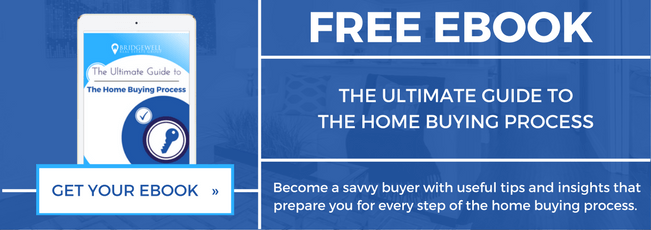Assessed Value vs Market Value BC
Determining a Home’s REAL Worth
It’s that time of the year again – BC assessment notices have arrived in the mail, and this usually leaves all property owners (& even home buyers!) wondering what the difference between assessed value vs market value in BC is.
In this blog, we clarify what BC assessment is and how they calculate assessed value. Understanding the different between assessed value vs market value is important for both home sellers and home buyers in the real estate world, so every one can benefit from this blog.
We dive deep in to the difference between assessed value and real estate market value, to show you the difference between assessed and what your home would sell for in today’s market.
If you’re interested about what a home should sell for in today’s market compared to the property assessment, then this is the blog for you! Read on to learn everything you need to know about assessed value vs market value in BC.
BC Assessment is used by tax authorities to help determine ownership, a base for real property taxation, and also classifies and estimates property value based on a third party assessor.
The assessment authority provides values that are determined in July of the previous year; which means that even though you are getting your assessments now (January 2020), that value is estimated from July 1, 2019.
Furthermore, properties are rarely visited in person by provincial appraisers (that would be quite a big job!), so interior, renovations, modifications, layout, and more are often not accurate or not taken in to consideration.
Ultimately, these assessments provide the foundation for municipal and provincial taxation, and that is the real purpose of BC Property Assessment – to provide a measure for the government to tax you on your property.
For this exact reason, the property assessments shouldn’t be solely relied upon as the market value of what your home could sell for in the current market. Provincial property assessments can be inconsistent (think of 2 neighbours with the same house being assessed at different values), and there is no tried and true answer to how much above or below assessment a property will sell for in any given market. We’ve seen assessments that are significantly too high, or way too low.
The market is always changing, and is Vancouver it often seems like it changes every day, so the fact that assessed values are determined in July of the previous year means they are vastly outdated by the time they reach your door.
Definitions and the Difference Between the Assessed Value vs Market Value

How is Assessed Value Calculated?
The main purpose of BC property assessment is for the government to determine how much municipal or provincial tax any given homeowner will pay for their ownership. However, the assessed value on there is what most homeowners pay attention to, so it’s important to understand how assessed value is calculated and why you probably shouldn’t put too much weight on it when it comes to the real estate market.
First, the appraisers rarely visit a home to assess it in person. Because this is done mostly online, they are unable to take in to consideration any additional renovations, layout, maintenance and more. Therefore, the appraisers consider a property’s characteristics with the most weight on the following to determine assessed value:
· The location of a home
· The view from the home
· The size of the home
· The lot size of the home (if single family)
· The age of the home
· Garages, carports, decks, adds on done with permit through the city, etc.
· Comparable sales prices for homes in the area that are similar based on the above, and other real estate market information based on July 1st of the previous year
Most importantly, it is based on what the assessment department considers to be the value of your home on July 1st of the PREVIOUS year…. Meaning the assessed value is over 6 months outdated.
Here’s a metaphor for you: If I told you on July 1st that the weather on January 20th of the following year would be sunny and 20 degrees, how much weight would you put on that? Probably not a lot.
Timing and the current state of the real estate market is a huge factor when it comes to determining market value of a home, and due to the nature of when and how far out property assessments are calculated, this is one of the reasons it is not representative of the current market value of your home.
How is market value calculated?
There are A LOT of factors that go in to determining the market value of a home and what the buyer is willing to pay for it.
Ultimately, market value can be defined as what a buyer is willing to pay to purchase a home and what the seller is willing to agreeably sell it for.
You can often see that what homes are selling for in the market are significantly different than what a home was assessed at, and that assessed value vs market value isn’t just a black and white calculation that can be applied against all types of homes.
Comparatively to the factors listed above on how to calculate assessed value, the following is often used to calculate market value of a home:
· Interior layout & design preferences at the time (ie right now, open concept is popular)
· Location & proximity to various types of transit (skytrain > westcoast express > 1 bus > 2+ bus)
· Age
· The interior size of a home
· Garage, carports, decks, number of parking stall, RV parking, etc.
· Upgrades and maintenance such as: renovations, hot water tank/furnace/roof/windows updated, flooring, appliances, and more
· Lot size if detached, and whether the lot is flat, sloped, difficult to build on, in a flood plain, or has large trees with roots located on the lot area
· If strata, contingency reserve funds, special levies, maintenance fees, and overall pro-activeness of the strata
· The CURRENT real estate market trends (demand and supply, multiple offers, etc)
· Recent sales that are comparable (recent is typically less than 30 days, and no more than 90 days) and reflect a common interior or maintenance quality
· How well the realtor markets the property and the amount of exposure it receives
· Buyer emotion and how badly they need to move or want THAT property
· And much, much, more
The big differences between assessed value vs market value are:
· A buyer has a physical presence to view the home as it is and get the full picture, whereas an assessment appraiser does not
· More factors are taken in to consideration when determining market value, therefore allowing for a more accurate representation of the value of a home
· A lot can change in 6 months, and BC assessment is only assessed once a year on July 1st of the previous year; whereas, market value is in real time
In the first 3 quarters of 2019 we saw a slump in the housing market, but things started to bounce back in the fourth quarter – with many homes in December 2019 seeing a significant jump. January 2020 has taken off strong, with a number of multiple offer scenarios consistently being seen in the market; thus affecting and increasing overall market value.
No hard feelings to BC assessment, as I believe it is simply not viable for them to update their assessed valuation’s in real time or send an appraiser out to each and every home. Therefore, this discrepancy between assessed value vs market value will likely persist, but that’s why it is helpful to understand that they are not truly a representation of what your home could sell for.
Each home has an assessed value and an appraised market value, and while they are both values they are still two majorly different things. Assessed value is used to determine how much your tax bill should be every year and appraised market value represents what your home could sell for in the current market.
Know What Your Home is REALLY Worth
It is natural to be concerned with changes (especially decreases) in assessed property values, as you’ll probably worry that your home is not worth as much you might have paid for it, or you may not get the return on investment you hoped. However, don’t be too discouraged – as your property assessment may not affect your market value much at all.
If you really want to know what your home could sell for in the current real estate market, the best thing to do is have a realtor come by your home for a tour and market evaluation.
If you refer back to the determining market value section, this is what you can expect from a realtor in terms of preparation for a market evaluation. At Bridgewell, we take all of that in to consideration and more to cross reference between your current home, the current market, recent comparables, and currently active properties to come up with an estimate market value and listing strategy that best reflects your real estate goals.
If you’re curious about what your home could sell for in the current market or want a recommendation for a listing price, then reach out to us for a FREE, no pressure, no obligation market evaluation of your home. Call or text 604-319-0200 or email [email protected] to start a conversation.
There’s a lot of different ways to list your property and that’s a whole other blog post (for more details: Home Pricing Strategies – How to Determine List Price), and that is another part of the market evaluation process in which a pricing recommendation is put forward to you.
—–
Looking to buyer or sell real estate in the Greater Vancouver and Fraser Valley areas? Start a conversation with a realtor from Bridgewell Group by calling or texting 604-319-2020 or email [email protected] to talk to a realtor about buying or selling in the Greater Vancouver area today.


